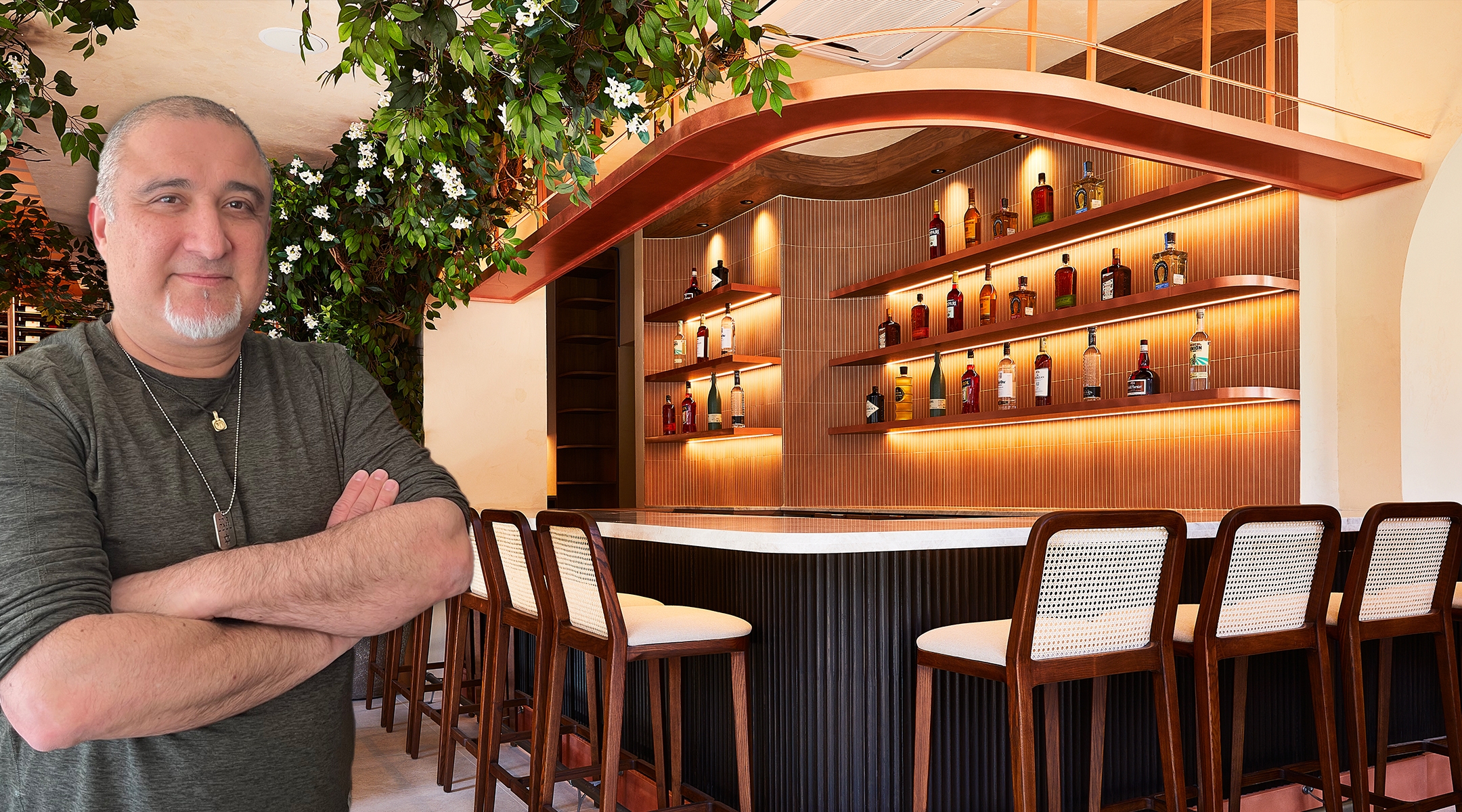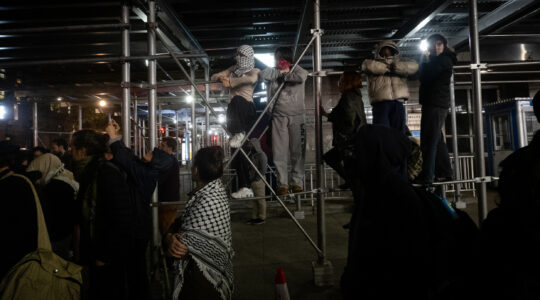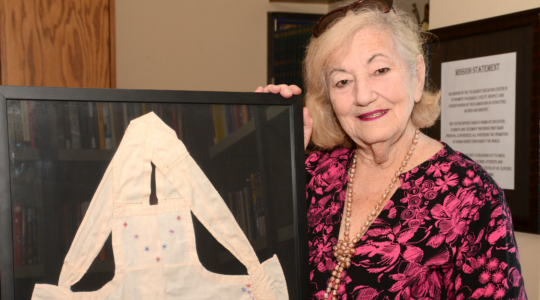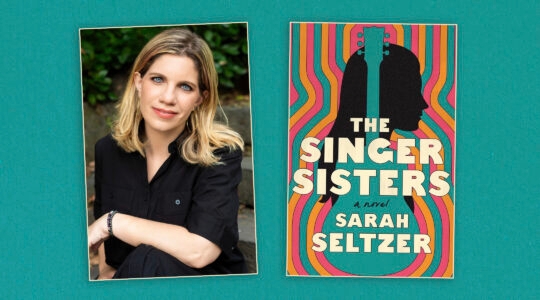(New York Jewish Week) — Efi Naon, the Israeli chef who 20 years ago pioneered modern Middle Eastern and Mediterranean cuisine in New York, this week opened Frena, his latest upscale eatery to feature clay-oven cooking.
Located on the Far West Side of Manhattan, Frena is in the same spot that once housed Taboon, the acclaimed restaurant where Naon was the executive chef until it was destroyed in a fire in May 2021.
It’s a full-circle moment for Naon, who was one of the first to introduce New Yorkers to modern Israeli food when Taboon opened on a somewhat desolate stretch of Tenth Avenue in February 2004.
“There was nobody else here before except maybe Cafe Mogador [in the East Village] and a few pita places,” Naon, 51, told the New York Jewish Week. “There wasn’t anything like modern Israeli food. Taboon was the first one, the landmark. We opened the door.”
Of course, New York City’s culinary landscape has markedly transformed since then: Modern Israeli cooking is now at the forefront of the city’s dining scene. High-end Israeli establishments include Einat Admony’s Balaboosta, which opened in 2010; Michael Solomonov’s skewer house, Laser Wolf, which debuted in Williamsburg in 2022 and Eyal Shani’s growing New York City food empire — including his first kosher spot in the U.S., Malka, and Shmone, which was awarded a Michelin star last fall
Foods like shakshuka, hummus and kibbeh need little explanation to today’s intrepid New York foodie.
At Frena, which opened Wednesday, Naon is embracing many of the dishes and concepts that made Taboon such a success. “Taboon was closed because of the fire — not because the food wasn’t great,” he said. “So we kept the menu as it is. I tried to upgrade it a little to make it better.”
These “upgrades” include using wagyu beef in the stuffed phyllo treats known as Moroccan cigars — a step up from the 80/20 ground beef Naon previously used in that dish. He also changed up some of his salads and their dressings — the chopped salad is more of a fattoush salad now, with halloumi cheese and croutons. The baby gem salad now uses Jerusalem stone yogurt, a dried sheep’s milk yogurt that can be grated into food like parmesan cheese.
But perhaps most significantly, Frena, like Taboon before it, is all about that clay oven. All of the main courses, from fish to lamb, are cooked inside the dome-shaped structure. In fact, it’s the same oven that made Taboon such a success — although it is now a gas, rather than a wood-fired, oven.
“It is hard to get permits for [wood-burning ovens] today,” Naon said. “When we started to renovate, we thought it would take a few months. But it could have taken a year or so and we wanted to open.”
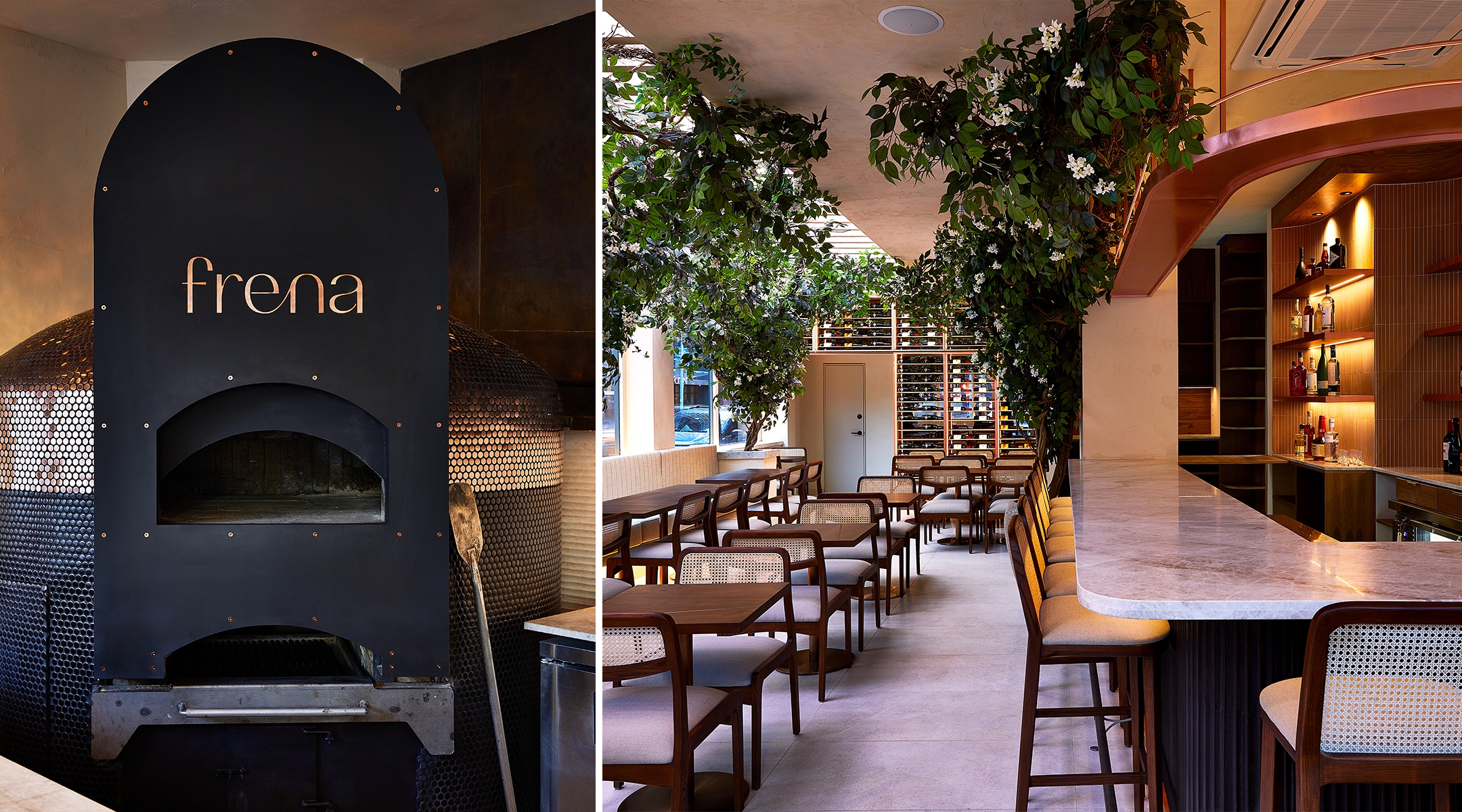
Left: The clay oven, or frena, is the same one that was used at Taboon, though it it now uses gas instead of wood. Right: The airy interior of the restaurant. (Rachel Ringler, Armando Rafael)
Instead of re-opening Taboon, Naon and his new business partners, Aharon Vaknin and his son and daughter-in-law, Stephen and Danielle Vaknin, decided to change the name of the restaurant to signify a fresh start. It helps, too, that Aharon and Stephen are, like Naon, Moroccan Israelis, and the term “frena” — which refers to the community oven in a Moroccan village — represents their home, family and their common culture.
In Casablanca, where Naon’s grandparents are from, Jewish families would put their Sabbath stews in the frena on Fridays and come on Saturday mornings to pick them up, he said.
Support the New York Jewish Week
Our nonprofit newsroom depends on readers like you. Make a donation now to support independent Jewish journalism in New York.
To celebrate the newness of Frena, Naon changed up the bread on offer. Frena is also the name of a Moroccan bread which some describe as a cross between focaccia and pita. Naon says his frena is fluffier and has a better crust than the bread he previously served at Taboon. The difference is in the details: a longer rising time and a different type of flour.
His food is “evolving all the time,” Naon said. “I don’t sit in the office and write things down. Change comes to me. It happens when I am in the kitchen.”
Of course, change also comes to New York City. When Taboon opened, New York Times food writer Florence Fabricant described the restaurant as adding “personality to a stretch of town better known for Mexican and Peruvian storefronts.”
“Things were very tough in the beginning,” Naon said. “People didn’t walk in. Who opens a kitchen in Hell’s Kitchen back then?”
Things started off slowly in 2004, but a few months after opening, Adam Platt, then the senior restaurant critic at New York Magazine, described the restaurant’s “Middle Eastern-fusion menu” as “satisfying and refined (excellent mezze, beef cheeks braised with chickpeas, oxtails rolled in little cigars), but the bread, which is piping hot and pooled with oil, is reason enough to visit what is arguably the best restaurant in Hell’s Kitchen.”
Business picked up rapidly. It turns out New Yorkers loved Taboon’s “Middleterranean” fare, including the terracotta lamb kebabs — made of Colorado ground lamb, baby eggplant, plum tomatoes, tahini, pine nuts covered in flatbread — and the chopped salad seasoned with lemon, sumac and tahini. (Iterations of both of these dishes are now on Frena’s menu.)
In August the following year, Frank Bruni, then the restaurant critic at the New York Times, awarded Taboon two stars. When Naon got the news, he was was on vacation in Israel — his first visit in nearly two years. “I said, OK, is that good or is it bad,” Naon recalled. “I had no idea.”
Naon, who was raised in Holon, a city a few miles south of Tel Aviv, got his start in the restaurant business in Israel in 1994. Having just finished his army service, he needed cash and took a job as a dishwasher in a local restaurant. Naon thrived in the kitchen and began taking on tasks beyond washing dishes. After a few jobs at other restaurants, he enrolled in the Tadmor Culinary Institute in Herzliya. Upon graduation in 1995, he took a job as sous-chef at a seafood restaurant in Jaffa; from there, he went to work in L’Esperance, a three-starred Michelin restaurant in France.
After a year in France, Naon returned to Israel and worked for Israeli celebrity chef Haim Cohen, who mentored him. Cohen eventually brought him to New York to serve as the executive chef at Taboon in 2004 — a role he held until 2008, when Naon was ready for a new challenge. Naon moved downtown to Barbounia in the Flatiron District, another Middle Eastern fusion restaurant, as its executive chef. In 2013 he opened Bustan on the Upper West Side, which quickly became known for its inventive food and flatbreads.
Naon returned to Taboon in 2015 as its executive chef and a partner in the business. He also consulted on Taboonette, a fast-casual take on the “Middleterranean” food that was Taboon’s hallmark. He remained at Taboon until the restaurant shuttered because of the fire and resulting water damage.
Naon harbored hopes of reopening, but said he lacked the insurance money in order to do so. Instead, the chef spent much of the last three years consulting for other restaurants — most of which are in Miami, including Motek Cafe. He also opened a second branch of Taboonette in Brooklyn Heights, and, in June 2023, he opened Esh, a restaurant in Fairfield, Connecticut with a name meaning “fire” in Hebrew.
In April 2022, nearly a year after the fire, Naon was approached by Aharon Vaknin, a former Taboon regular who owns the Upper West Side Tex-Mex eatery Santa Fe, about opening a new restaurant together.
Support the New York Jewish Week
Our nonprofit newsroom depends on readers like you. Make a donation now to support independent Jewish journalism in New York.
“Aaron and Efi connected over their shared culture and food,” said Danielle Vaknin, Aharon’s daughter-in-law and business partner, explaining that the two Moroccan Israelis became close friends.
“This [restaurant] centers around community, especially for my husband and my father in law who share their cultural background with Efi,” she said. “A lot of the food he produces really feels like home.”
“We always wanted the same spot,” Vaknin added, explaining why they reopened at 773 Tenth Ave., where Taboon once stood. “Efi loves Hell’s Kitchen and none of us could picture having the experience anywhere else.”
“When we opened Taboon and said that we are Mediterranean, and we have a little of this and a little of that, it took three to four years to explain to people what that means,” Naon said. “Part of what I did at Taboon is that now it is a concept: Mediterranean or modern Israeli food. People know what it is today. We are a landmark kitchen in Hell’s Kitchen. People are super happy to come back here.”
